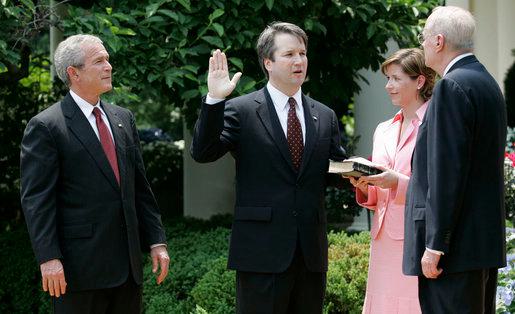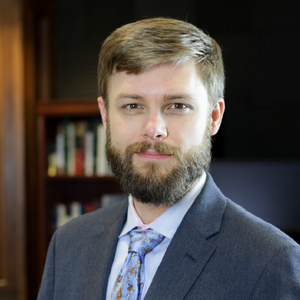
Law & Principles
Trent England | July 10, 2018
The better way to choose judges
Trent England
Last night, president Trump announced Judge Brett Kavanaugh as his nominee to become the next Associate Justice of the Supreme Court of the United States. The next few weeks promise to bring debate about law and the proper role of judges, not only to the United States Senate, but to media programs, coffee shops, and dining tables around the country. This is in stark contrast to the lack of public debate or even awareness of the selection of justices to the Oklahoma Supreme Court.
Of course the Supreme Court of the United States has made itself far more important then any state supreme court. This is different than when the first Chief Justice, John Jay, resigned because leading the nation's high court was boring. In our country's early years state supreme courts were more important than the nation's highest court. After all, most of the laws and government actions that touched people directly were all left in the hands of the states by our constitutional system of federalism.
There is another reason, however, that Oklahomans take little interest in the selection of justices to our state's Supreme Court. Even if we don't like it, if we want to change it, there is very little we can do about it. Ordinary Oklahomans have less power when it comes to the selection of appellate judges in our state than we do when it comes to the selection of federal judges. In the federal system, presidents nominate and senators vote on whether or not to confirm judges. This means that presidential elections determine who gets nominated, and the election of senators determines who gets confirmed. In Oklahoma, however, the governor can only choose a Supreme Court Justice from among three choices sent to her buy an unelected and little-known board called the Judicial Nominating Commission.
Oklahoma's process of judicial selection robs ordinary people of any meaningful say in the direction of our state's highest court. But it does give the state Bar Association a lot of sway. That body gets to choose almost half the members of the judicial nominating commission. And they take keen interest in who gets selected for the other positions on the JNC and, of course, for who gets elected to be a judge or justice. Reforming Oklahoma's system to be more like the federal process would diminish the power of a handful of lawyers, increase the power of ordinary Oklahomans, and give us all a little more reason to focus on our state courts and judges.

Trent England
David and Ann Brown Distinguished Fellow
Trent England is the David and Ann Brown Distinguished Fellow at the Oklahoma Council of Public Affairs, where he previously served as executive vice president. He is also the founder and executive director of Save Our States, which educates Americans about the importance of the Electoral College. England is a producer of the feature-length documentary “Safeguard: An Electoral College Story.” He has appeared three times on Fox & Friends and is a frequent guest on media programs from coast to coast. He is the author of Why We Must Defend the Electoral College and a contributor to The Heritage Guide to the Constitution and One Nation Under Arrest: How Crazy Laws, Rogue Prosecutors, and Activist Judges Threaten Your Liberty. His writing has also appeared in the Wall Street Journal, USA Today, Washington Times, Hillsdale College's Imprimis speech digest, and other publications. Trent formerly hosted morning drive-time radio in Oklahoma City and has filled for various radio hosts including Ben Shapiro. A former legal policy analyst at The Heritage Foundation, he holds a law degree from The George Mason University School of Law and a bachelor of arts in government from Claremont McKenna College.